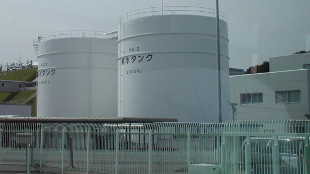 A photo of the Fukushima plant taken in 1999WIKIMEDIA COMMONS, KAWAMOTO TAKUO
A photo of the Fukushima plant taken in 1999WIKIMEDIA COMMONS, KAWAMOTO TAKUO
Nuclear reactors at the Fukushima Daiichi nuclear power plant, which was badly damaged by the massive earthquake and tsunami that hit Japan in March, have finally been stabilized, according to the country's Prime Minister, Yoshihiko Noda.
The announcement followed the "cold shutdown" of the breached reactors, which were cooled using seawater. "The nuclear reactors have reached a state of cold shutdown, and therefore we can now confirm that we have come to the end of the accident phase of the actual reactors," Noda told a news conference on Friday, according to BBC News. "We are now moving from trying to stabilize the nuclear reactors to decommissioning them."
Noda went on to promise that the Japanese government would move into this next phase safely while focusing ...


















